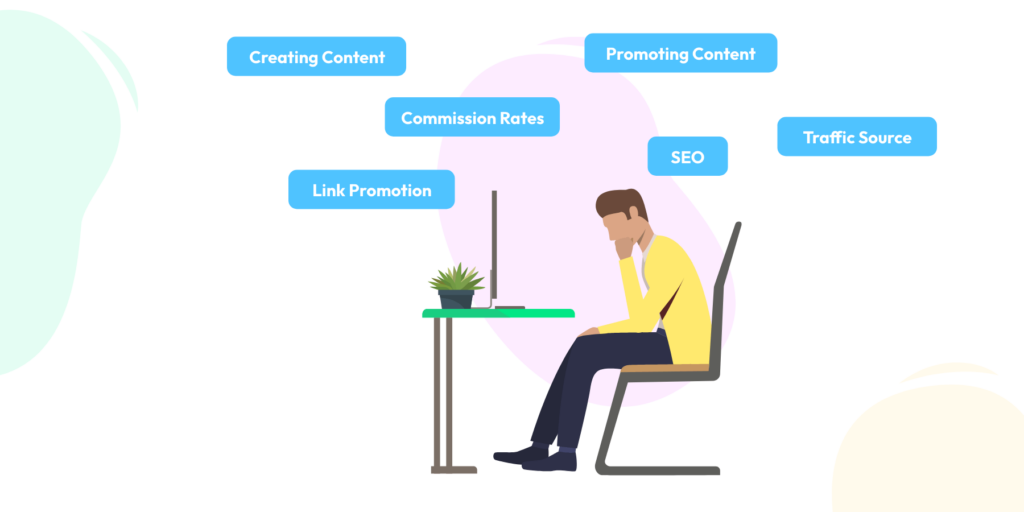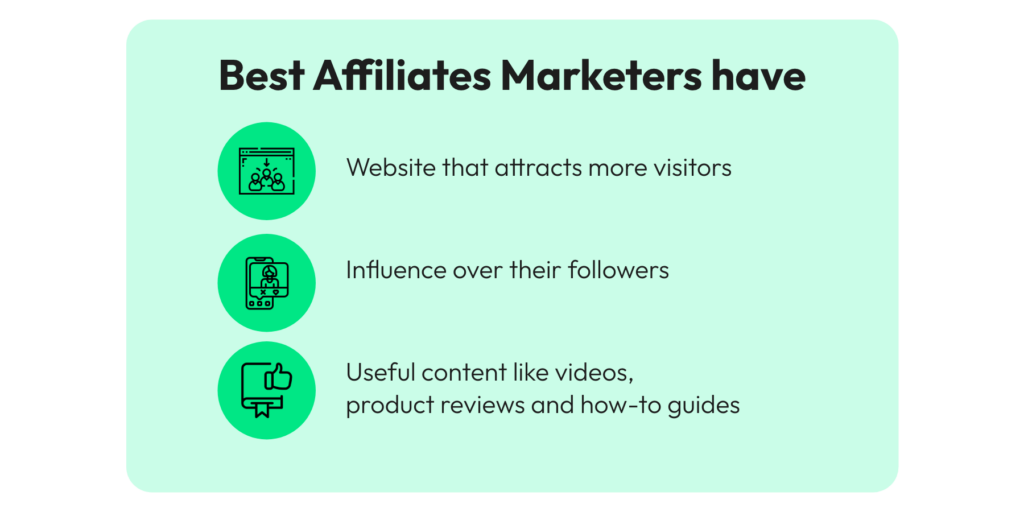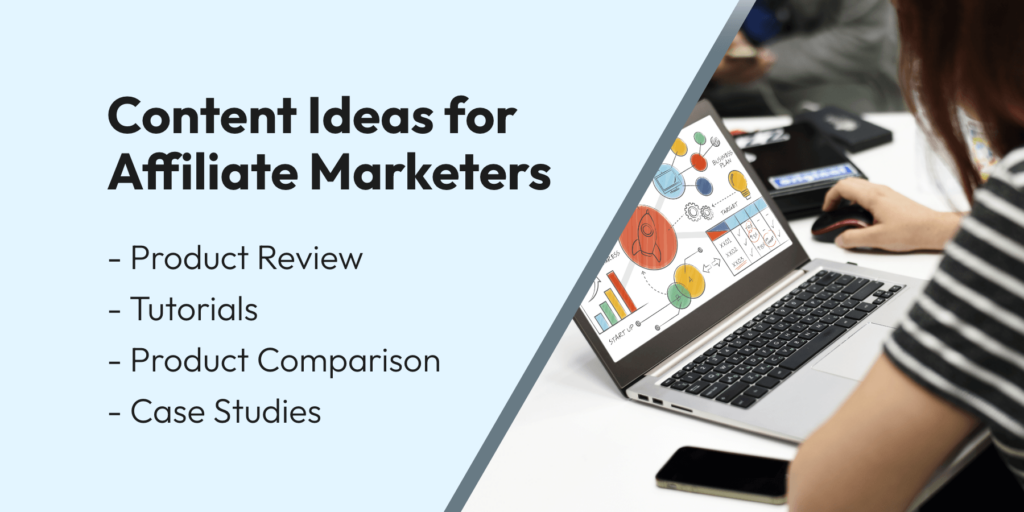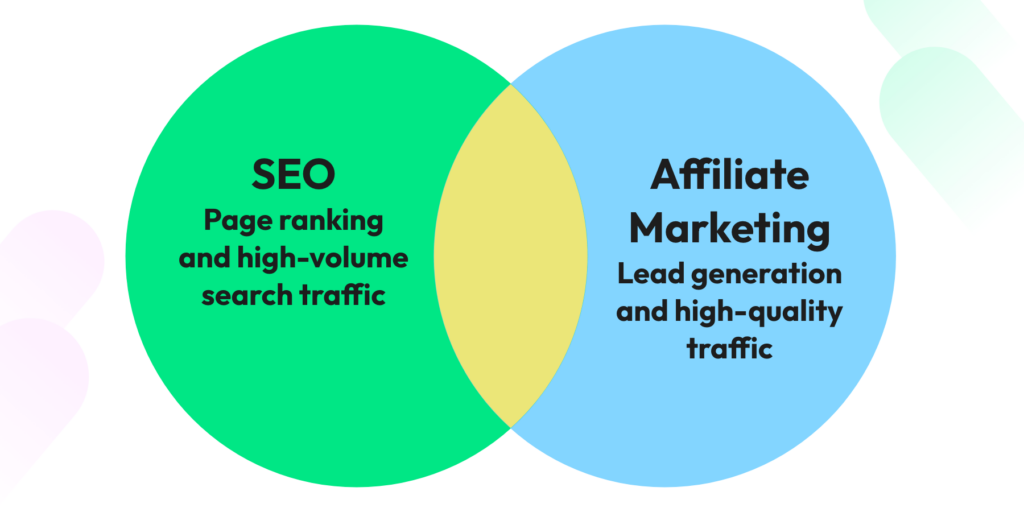
Affiliate Marketing Mistakes to Avoid in 2025!
Written by:
 Ashwin
|
on:
November 20, 2023
|
Last updated on:
January 15, 2025
|
According to: Editorial Policies
Ashwin
|
on:
November 20, 2023
|
Last updated on:
January 15, 2025
|
According to: Editorial Policies
As an experienced affiliate marketer, I understand the importance of avoiding common mistakes to achieve success in this industry. In this blog post, I will share valuable insights and strategies to help you navigate the affiliate marketing world effectively. From prioritising helping over selling to neglecting SEO best practices, I will cover a range of crucial mistakes to avoid.
#1 Prioritizing Selling Over Helping

One common mistake that many marketers make is prioritizing selling over helping. Getting caught up in the desire to generate sales and earn commissions is easy, but this approach often fails to build trust and provide value to the audience.
The Importance of Building Trust
Building trust should be the foundation of any successful affiliate marketing strategy. Readers who trust your recommendations are more likely to purchase based on your suggestions. However, to gain their trust, you need to demonstrate expertise and authenticity.
One key aspect of building trust is having a deep understanding of the product you are promoting. If you don’t know the ins and outs of the product, it will be difficult to convince your audience that it’s worth their investment. Take the time to thoroughly research and use the product yourself, so you can provide honest and valuable insights.
Another important factor in building trust is providing valuable content. Publishing low-quality content can hinder your success in affiliate marketing. Your content should be informative, well-researched, and engaging. By providing valuable content, you establish yourself as an authority in your niche and develop a loyal audience.
Providing Valuable Content

When it comes to creating content for affiliate marketing, it’s not just about pushing products and promotions. Instead, focus on providing value to your audience. This can be done through various mediums, such as blog posts, videos, or social media content.
Neglecting the readability of your content can negatively impact user experience. Pay attention to font size, line height, and paragraph length to ensure your content is easy to read and comprehend. Remember, the goal is to engage your readers and keep them returning for more.
#2 Publishing Low-Quality Content

Impact on Success
Publishing low-quality content can have a detrimental impact on your success as an affiliate marketer. When visitors come to your website or blog and encounter poorly written or irrelevant content, they will likely leave quickly, resulting in high bounce rates. Ignoring or overlooking site speed is another mistake that can contribute to increased bounce rates. In today’s fast-paced digital world, users expect websites to load quickly, and if your site is slow, they will likely abandon it and seek information elsewhere.
Neglecting the readability of your content is yet another error that can negatively impact user experience. Factors such as font size, line height, and paragraph length all affect how easily readers can consume your content. If your text is too small, too cramped together, or consists of lengthy paragraphs without proper breaks, it can be challenging for users to engage with your content.
Also Read: How to Become a Wati Affiliate to Boost Your Income?

Tips for Creating High-Quality Content
To avoid the pitfalls of publishing low-quality content, here are some tips to help you create high-quality content that resonates with your audience:
- Prioritize value and assistance: Instead of solely focusing on selling, prioritize providing value and assistance to your audience. Create content that educates, informs, and addresses their pain points.
- Optimize site speed: Ensure that your website loads quickly by optimizing images, utilizing caching techniques, and choosing a reliable hosting provider.
- Pay attention to readability: Use legible font sizes, and appropriate line heights, and break up content into digestible paragraphs. Make it easy for your readers to consume your content.
- Deep dive into product knowledge: Take the time to research and understand the products you promote thoroughly. This knowledge will allow you to provide accurate and authentic recommendations to your audience.
- Implement SEO best practices: Optimize your content for search engines by optimizing title tags, and meta descriptions, and using relevant keywords. This will help your content rank higher in search engine results and make it easier for people to find.
- Focus on evergreen content: Incorporate evergreen content into your strategy. Evergreen content refers to content that remains relevant and valuable over a long period of time. Creating evergreen content can attract consistent traffic and have long-term link-building opportunities.
- Promote products you believe in Only promote products that you genuinely believe in and would personally use. Authenticity is key in building trust with your audience.
- Build a targeted audience: Take the time to identify and build a targeted audience that aligns with the products you promote. This will increase the likelihood of conversions and success in your affiliate marketing endeavours.
- Utilize inbound marketing techniques: Employ inbound marketing techniques such as SEO, link building, and social media marketing to boost traffic to your website and increase your chances of success.
- Measure performance: Regularly track and analyze the performance of your marketing efforts using tools like Google Analytics. You can make informed decisions and optimize your strategies for better results by measuring metrics such as traffic, engagement, and conversions.
By following these tips, you can ensure that you are creating high-quality content that not only attracts and engages your audience but also contributes to your success as an affiliate marketer.

#3 Ignoring Site Speed

It’s easy to get caught up in the excitement of promoting products and earning commissions. However, one common mistake that many affiliate marketers make is ignoring or overlooking the importance of site speed. This mistake can have a significant impact on user experience and ultimately hinder the success of your affiliate marketing efforts.
Impact on User Experience
When a user visits your website, they expect a fast and seamless browsing experience. If your site takes too long to load, it can lead to frustration and increased bounce rates. Studies have shown that even a one-second delay in page load time can result in a 7% reduction in conversions. This means that if your site is slow, you could lose potential customers and miss out on valuable commissions.
In addition to bounce rates, site speed also affects user engagement. Slow-loading pages can deter users from exploring your site further, leading to lower engagement metrics such as time on page and pages per session. This can ultimately impact your credibility as an affiliate marketer and make it more difficult to build trust with your audience.
Tips for Improving Site Speed
Now that you understand the impact of site speed on user experience and affiliate marketing success, let’s explore some tips for improving the speed of your website:
- Optimize image sizes: Large image files can significantly slow down your site. Make sure to compress and resize images appropriately without sacrificing quality.
- Minimize HTTP requests: Reduce the number of HTTP requests by combining CSS and JavaScript files, and remove any unnecessary elements or plugins that may be adding to the load time.
- Enable browser caching: Utilize browser caching to store static files, such as images and CSS, on the user’s device. This allows for faster loading times upon subsequent visits to your site.
- Choose a reliable hosting provider: Opt for a hosting provider that offers fast server response times and reliable uptime. A slow server can significantly impact your site’s speed.
- Use a content delivery network (CDN): A CDN helps distribute your website’s content across multiple servers worldwide, reducing latency and improving load times for users around the globe.
- Minify CSS and JavaScript: Minifying your CSS and JavaScript files removes unnecessary characters, such as white spaces and comments, reducing file sizes and improving load times.
- Monitor your site’s speed: Regularly check your site’s speed using tools like Google PageSpeed Insights or GTmetrix. Identify any performance bottlenecks and take the necessary steps to optimize your site further.
By implementing these tips and continuously monitoring your site’s speed, you can provide a faster and more enjoyable browsing experience for your users, leading to increased engagement, conversions, and ultimately, affiliate marketing success.
Remember, site speed is not something to be ignored. It plays a crucial role in user experience and can greatly impact the success of your affiliate marketing efforts. So, take the time to optimize your site’s speed and provide your audience with a seamless and fast-loading website.

Section 4: Neglecting Readability of Content
When it comes to affiliate marketing, it’s easy to get caught up in the excitement of promoting products and earning commissions. However, neglecting the readability of your content can have a negative impact on the user experience and ultimately hinder your success as an affiliate marketer. In this section, we will explore the importance of font size, line height, and paragraph length in improving the readability of your content, as well as the overall user experience.
Importance of Font Size, Line Height, and Paragraph Length
One of the key factors in ensuring the readability of your content is the choice of font size. Selecting an appropriate font size is crucial as it can greatly affect how users perceive and consume your content. If the font size is too small, readers may struggle to read the text, leading to frustration and a higher likelihood of bouncing off your site. On the other hand, if the font size is too large, it can disrupt the flow of the content and make it appear unprofessional.
In addition to font size, the line height, or the vertical space between lines of text, plays a significant role in readability. Proper line height ensures that the text is comfortably spaced, making it easier for readers to follow along without feeling overwhelmed or cramped. A well-balanced line height enhances the overall reading experience and encourages users to engage with your content.
Improving User Experience
Neglecting the readability of your content can have a direct impact on the user experience. When users visit your site, they expect to find valuable information presented in a way that is easy to consume. If your content is difficult to read due to small font sizes, cramped line spacing, or long paragraphs, users are more likely to leave your site in search of a more user-friendly alternative.
By prioritizing readability, you can enhance the overall user experience and keep visitors engaged. Clear and legible text, accompanied by appropriate font sizes, line heights, and paragraph lengths, creates a positive impression and encourages users to spend more time on your site. This increased engagement can lead to higher conversions and ultimately contribute to the success of your affiliate marketing efforts.
Lack of Product Knowledge
Affiliate marketing can be a highly profitable venture if done correctly. However, one common mistake that many affiliate marketers make is not having a deep understanding of the product they are promoting. This lack of product knowledge can make it difficult to gain readers’ trust and ultimately hinder success in affiliate marketing.
Building Trust with Readers
Building trust is essential in any marketing strategy, and affiliate marketing is no exception. When promoting a product, it is crucial to have a comprehensive understanding of its features, benefits, and limitations. This knowledge allows you to communicate effectively with your audience and address any concerns or questions they may have. By demonstrating your expertise and providing valuable information, you can establish yourself as a trusted source of recommendations.
To build trust with your readers, it is important to be transparent and authentic in your content. Avoid promoting products solely for the sake of earning commissions, as this can come across as insincere. Instead, focus on offering genuine recommendations based on your personal experience or thorough research. By showcasing your expertise and providing honest insights, you can earn the trust of your audience and increase the likelihood of them taking your recommendations seriously.
Importance of Understanding the Product
Having a deep understanding of the product you are promoting is crucial for several reasons. Firstly, it allows you to create high-quality content that provides value to your audience. When you thoroughly understand the product’s features, benefits, and target audience, you can tailor your content to address their specific needs and interests. This personalized approach not only helps you attract and engage your target audience but also positions you as an authority in your niche.
In addition, a deep understanding of the product allows you to address any potential concerns or objections that your audience may have. By preemptively addressing these concerns and providing accurate information, you can alleviate any doubts and increase the likelihood of your audience making a purchase.
Also Read: How to double your Affiliate Marketing Income in 2024
#6 Ignoring SEO Basics
Search Engine Optimization (SEO) plays a crucial role in making your content discoverable and driving organic traffic to your website. By neglecting SEO, you risk limiting the visibility of your content and missing out on valuable opportunities to reach your target audience.

Importance of Title Tags and Meta Descriptions
Title tags and meta descriptions are essential elements of SEO that should not be overlooked. These elements provide concise and descriptive information about your content to search engines and potential readers. A well-crafted title tag can make your content stand out in search engine results, while an engaging meta description can entice users to click through to your website.
When optimizing title tags, it’s important to include relevant keywords that accurately describe the content of your page. However, it’s equally important to make sure your title tag is compelling and click-worthy. Remember, you’re not just optimizing for search engines, but also for human readers.
Meta descriptions, on the other hand, provide a brief summary of your content. They should be concise, informative, and persuasive. Think of them as your opportunity to convince users that your content is worth their time. Including relevant keywords in your meta description can also improve your chances of ranking higher in search results.
Tips for Optimizing Content
Optimizing your content for SEO goes beyond just title tags and meta descriptions. Here are some additional tips to help you improve your search engine rankings and attract more organic traffic:
- Focus on high-quality content: Publishing low-quality content can hinder your success in affiliate marketing. Make sure your content is well-researched, informative, and engaging. Provide value to your readers and establish yourself as a trusted source of information.
- Pay attention to site speed: Ignoring or overlooking site speed can lead to increased bounce rates. Users expect fast-loading websites, and search engines take site speed into consideration when ranking pages. Optimize your website’s performance to ensure a smooth and seamless user experience.
- Prioritize readability: Neglecting the readability of your content can negatively impact user experience. Pay attention to factors such as font size, line height, and paragraph length. Break up your content into smaller sections and use headings and subheadings to make it easier to read and navigate.
- Understand the products you promote: Not having a deep understanding of the products you’re promoting can make it difficult to gain readers’ trust. Take the time to thoroughly research and familiarize yourself with the products. This will allow you to provide authentic and valuable recommendations to your audience.
- Utilize evergreen content: Not utilizing evergreen content, which has consistent search queries over a long period of time, can limit long-term link building opportunities. Create content that remains relevant and valuable to your audience over time. This will help attract consistent traffic and increase your chances of building high-quality backlinks.
By following these SEO basics and implementing them into your affiliate marketing strategy, you can improve the discoverability of your content and increase your chances of success. Remember, SEO is an ongoing process, so stay up to date with the latest best practices and adapt your strategy accordingly.
Wrapping it Up
In conclusion, not utilizing evergreen content is a common mistake in affiliate marketing. By incorporating evergreen content into your strategy, you can reap the benefits of steady organic traffic, long-term link building opportunities and establish yourself as an authority in your niche. So, don’t overlook the power of evergreen content in your affiliate marketing efforts.
Frequently Asked Questions
How can I boost traffic to my affiliate marketing site?
Employing inbound marketing techniques like SEO, link building, and social media marketing can help boost traffic. It is important to optimize your content for search engines, build high-quality backlinks, and engage with your audience on social media platforms.
What should I consider when promoting affiliate offers through reviews?
When promoting affiliate offers through reviews, it is more effective to emphasize the benefits rather than just the features of the products. Highlight how the product can solve a problem or improve the user’s life. This approach helps to create a connection with the audience and increase the likelihood of conversions.
How can I measure the performance of my affiliate marketing efforts?
Measuring performance using tools like Google Analytics is crucial for running a popular site. By tracking key metrics such as traffic, conversion rates, and engagement, you can assess the effectiveness of your marketing strategies and make data-driven decisions to optimize your performance.





Latest Comments